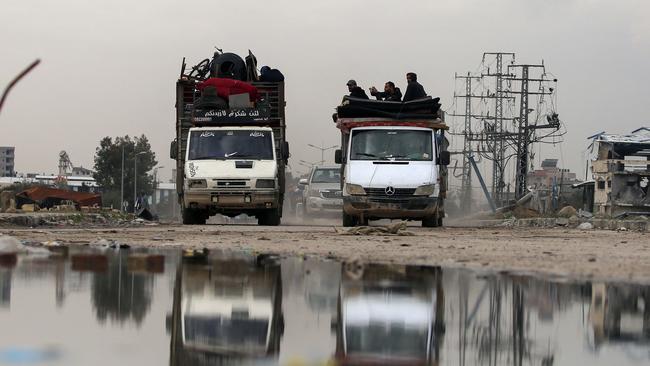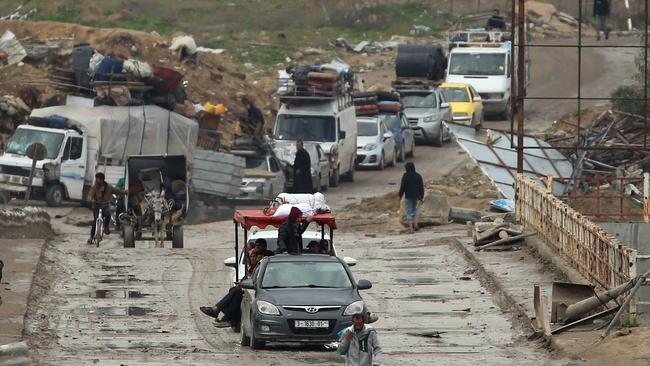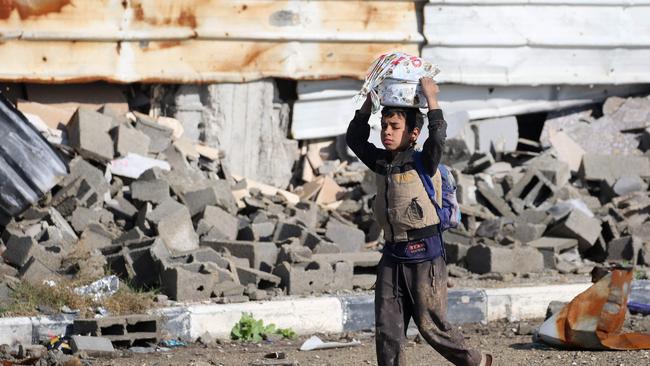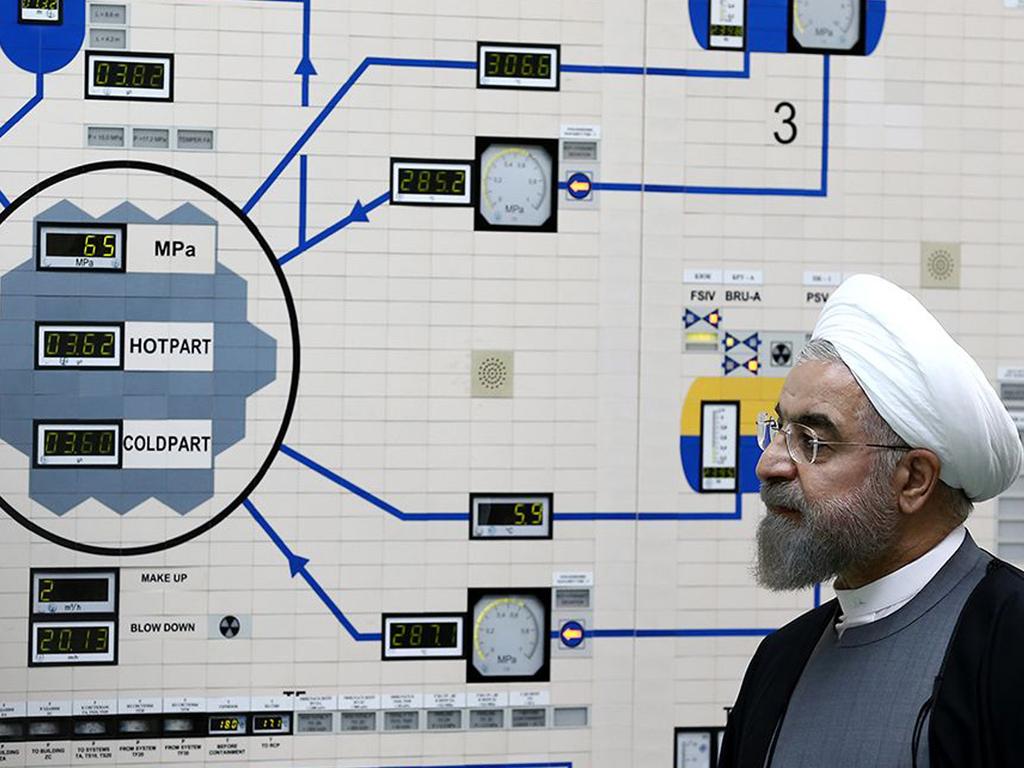Israel and Hamas agree to resolve ceasefire dispute
Hamas agreed to release three hostages on Saturday and may free another six next week after receiving guarantees from mediators that caravans and medical equipment would be allowed into Gaza.

Israel and Hamas have agreed to resolve a dispute that threatened to derail their fragile ceasefire after humanitarian equipment began entering Gaza on Thursday and Hamas backed off on a threat that it wouldn’t release any more Israeli hostages.
The militant group agreed to release the next three hostages that it had threatened to withhold after receiving guarantees from mediators that caravans and medical equipment would be allowed into Gaza on Thursday, according to mediators. Another six hostages - the remaining prisoners from the 33 set to be freed in phase one of the ceasefire - may be released next week, Israeli media reports. Egyptian officials said the mediation efforts had “succeeded in overcoming obstacles” that threatened the deal. Israel hasn’t yet commented.
By Thursday, some tents had entered the enclave and dozens of caravans were waiting at the Rafah Crossing between Egypt and Gaza. Some 800 trucks of humanitarian aid entered on Thursday, mediators said.
Mediators are also working to speed up the release of the remaining six living hostages after an Israeli request, according to mediators. The request came after hostages released last week returned looking thin and frail and details began emerging of disturbing conditions suffered in captivity, including some hostages being chained in tunnels with almost no food.
Israel has also told mediators it wants to expand the list of those set to be freed in the first phase of the deal beyond the 33 hostages already agreed upon, the mediators said. It remains unclear whether Hamas would agree to such a request.

Despite the resolution, larger disputes lie ahead for the two sides. Israel and Hamas agreed to a phased deal with the first phase consisting of a 42-day ceasefire and Hamas’ release of 33 Israeli hostages in exchange for hundreds of Palestinian prisoners. The second phase of the deal would see a complete end to the war and the release of the remaining living hostages. Negotiations for the second phase were supposed to begin about two weeks in but haven’t begun. The first phase ends on March 1.
The Israeli prime minister’s office and Cogat, the Israeli agency that coordinates humanitarian aid in Gaza, didn’t immediately respond to a request for comment.
The most serious threat to the ceasefire was sparked in recent days as Hamas and Israel issued duelling ultimatums about the next exchange billed for Saturday. Hamas said it wouldn’t release hostages until it gets more humanitarian supplies. Israel responded by saying it would resume fighting if the militant group didn’t let the hostages go.
Gaza’s population needs humanitarian aid, including tents, mobile homes and medical equipment, to face winter in the decimated enclave where there is no electricity, and many buildings and roads have been destroyed. More than 48,000 people have been killed in the fighting, according to Palestinian health authorities, whose figures don’t say how many were combatants.

Since the beginning of the ceasefire, at least nine Israeli families have received signs that their relatives in Gaza, mostly young men, are still alive, creating more urgency to release them.
Some of the details that have emerged have been alarming. Idit Ohel learned in recent days that her son, Alon, who was kidnapped from a music festival, has been kept shackled in an underground tunnel, shrapnel stuck in his eye and shoulder and subsisting on barely one piece of pita bread a day.
The family of Eliya Cohen, 27, who was also taken from the festival, learned that he is being held in the same tunnel with Ohel.
“He lost more than 20 kilos from his weight. He was chained in his legs all the time in the tunnels from the 7th of October until now. He’s in the tunnels without seeing any sunlight and he was disconnected, ” said Ziv Abud, Cohen’s fiancé. Abud learned that her partner doesn’t know that she survived the Oct. 7 attack.
“He doesn’t know anything about what happened outside and that I’m fighting for him,” she said.
Dow Jones




To join the conversation, please log in. Don't have an account? Register
Join the conversation, you are commenting as Logout